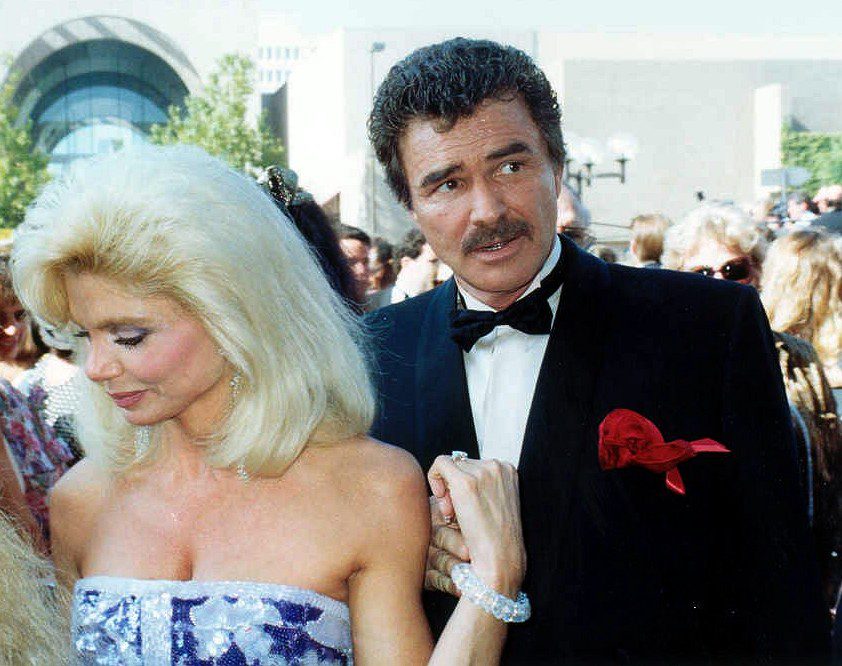Burt Reynolds: An American Original
By • September 10, 2018 One Comment 1095

Even now, when Burt Reynolds is no longer literally with us, after his death on Sept. 6 at 82, the major-league movie and television star, hot rodder, centerfold and celebrity who went through money, women, cars, real estate and bankruptcies at a phenomenal rate, is hard to get into focus.
The many faces somehow meld into one: the rugged cop, the rugged private eye, the rugged cowboy, the rugged good ol’ boy. The Bandit eluded Jackie Gleason with ease but, in real life, neither Sally Field nor Loni Anderson (and her lawyers).
Even at the last, or near the last, he was living the life of his legend, living in Southern Florida in an estate named Valhalla, suggestive of both Hollywood and Florida.
It’s not that Reynolds himself, in spite of all the stories that suggest otherwise, was somehow bigger than life. It was the life he lived that was bigger than life. In the stretch of his longish life, there were outsized elements: the football player with the injury that turned him on to acting and the Method, that quick-to-joke personality that made him a classic raconteur on late-night shows in the years of Johnny Carson, an unacknowledged gift for intense moments in intense films like “Deliverance” and “Boogie Nights.”
There was the guy with the big moustache who was naturally if sometimes dangerously sexy. He broke the barrier with a famous centerfold stint that revealed a jokey smile, not much in the way of body parts and more hair than his later toupees. That smile in that photo, stapled and all, was close to a knowing smirk. It signaled that he didn’t take that part of himself seriously, or seriously enough to use it more than he did in films.
Look at “Deliverance.” Most Hollywood chroniclers say that picture turned him into a bona fide superstar, from cops and robbers and cowboys to big-time player, a transformation that in some ways may also have ruined him as an actor. This John (“Zardoz”) Boorman-directed film, with Reynolds as the captain of a journey into the heart of backwoods darkness, based on a best-selling novel by hard-core macho poet James Dickey, was tough stuff, in which suburbanites fell afoul of nature’s cruelty and man’s worst instincts, including their own. He was no hero here, but rather a would-be avatar of danger and violence. “Deliverance” was Burt and the banjo music.
What happened was fame, scandal, big bucks won and lost at warp speed and various shades of love: a quickly ended marriage to a British actress; years with Dinah Shore, the loveable All-American queen of daytime television 20 years his senior; a relationship with Sally Field, the once but not future “Flying Nun,” who won two Oscars (making an announcement that became an oft-repeated gag), the woman Reynolds late in life admitted was the love of his life that he had let slip away.
And there was Loni Anderson, the WKRP star, blindingly blonde and bosomy, a kind of latter-day incarnation of the Marilyn brand, whom he married and squandered a good bit of his fortune on, before and during their marriage and after a tenaciously acrimonious split.
With Gleason, a fuming sheriff, as his foil, 1977’s “Smoky and the Bandit,” one of those car-chase movies that seemed like a long running ad for NASCAR, made more money than Reynolds had probably ever dreamed of, but not so much that he couldn’t squander it.
Once he lost it all, the career almost went with it. Bad action movies, some good rom-coms, a role as a rascal politician in “Striptease” and, in “Boogie Nights,” a compelling turn as a 1970s porn producer, followed.
None of it did permanent damage to the persona. He could be a pain, by reputation, to work with, but audiences, when they showed up, loved him.
His racing movies were a part of Southern cliché culture of the kind that figured strongly in moonshine stories, with cars taking off to heights unknown, women who tied their shirts just above the navel and the sound of laughter at the expense of local law. That’s big Burt.
It’s the South of “Evening Shade,” a television series of Arkansas eccentrics that included Charles Durning, Hal Holbrook, Ossie Davis and Elizabeth Ashley, in which he played a retired football star coaching a high school team.
Reynolds’s last film was “The Last Movie Star,” directed by Adam Rifkin with Chevy Chase, released in March of 2018. It was about a movie star adding up his life as … a movie star.
Maybe in “The Last Movie Star,” Reynolds, star and man, will come into focus as the unapologetic American original that he was.


I hear that Loni Anderson went through, Burt’s, money really fast. That she always bought three of everything. He was probably too nice to her. I loved Reynolds. He was a great actor.